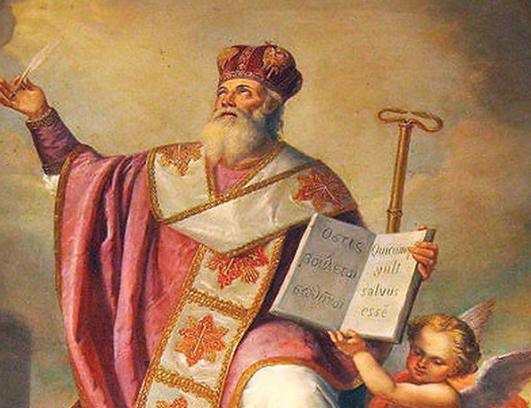How Saint Athanasius Defended the Trinity
The concept of the Trinity is a cornerstone of Christian belief, representing the unity of the Father, the Son, and the Holy Spirit as one God. Understanding how Saint Athanasius defended this doctrine is crucial for grasping the history of Christianity and its theological foundations. Athanasius’s unwavering commitment to this belief during the Arian controversy shaped Christian orthodoxy and continues to influence the faith today.
The Arian Controversy: A Battle for Orthodoxy
During the 4th century, the Arian controversy ignited significant theological disputes regarding the nature of Christ. Arius, a priest from Alexandria, proposed that Jesus was a created being and not fully divine, undermining the concept of the Trinity. Saint Athanasius vehemently opposed this view, asserting that Jesus is “consubstantial” with the Father, meaning they share the same divine essence. His bold stance led to several exiles, but Athanasius remained resolute, arguing that only a fully divine Christ could bring salvation to humanity.
Key Writings and Theology
Athanasius’s most influential work, “On the Incarnation,” articulates his theological perspective. He emphasized that the incarnation of the Word was essential for humanity’s redemption, arguing that the Son of God became human to restore the fallen nature of mankind. Additionally, his writings often referenced Scripture, focusing on biblical passages that support the Trinity. Athanasius’s meticulous exegesis helped clarify misunderstandings and solidify the church’s understanding of Christ’s dual nature—fully God and fully man.
The Council of Nicaea and Lasting Impact
In 325 AD, the First Council of Nicaea convened to address the Arian heresy, heavily influenced by Athanasius’s teachings. The council produced the Nicene Creed, which affirmed the co-equality of the Father and the Son. Athanasius’s persistence not only secured a significant victory for Trinitarian doctrine but also established a framework for addressing future theological disputes. His legacy lives on in the church today, as his defense of the Trinity underscores the importance of maintaining doctrinal integrity in the face of controversy.
Conclusion
Saint Athanasius’s defense of the Trinity offers profound insights into the early church’s struggles and triumphs. His unwavering commitment to theological truth continues to inspire believers to explore and understand their faith more deeply. If you’re intrigued by Athanasius’s life and legacy, consider diving deeper into his writings or the historical context of the early church. The journey of faith often begins with understanding the foundations laid by figures like Athanasius.

